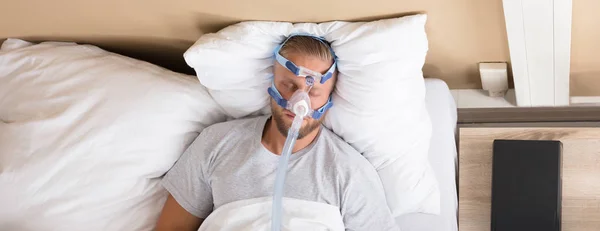Discover the Most Common Symptoms of Sleep Apnea
- Written by The Times
Sleep apnea is a common yet serious sleep disorder that affects millions of individuals every year. This condition is characterized by repeated interruptions of breathing during sleep, leading to poor sleep quality and other health complications. If left untreated, sleep apnea can result in various serious health problems, such as hypertension, heart disease, stroke, and even death.
In Melbourne, sleep apnea is a common condition that affects many individuals. It is a serious sleep disorder characterized by repeated interruptions in breathing during sleep, which can lead to a range of health issues if left untreated. Fortunately, there are several treatment options available to help manage sleep apnea in Melbourne. These include continuous positive airway pressure (CPAP) therapy, oral appliances, positional therapy, and lifestyle modifications. Individuals with sleep apnea need to seek professional medical advice and undergo a sleep study to identify the severity of their condition and determine the most appropriate treatment plan.
Loud Snoring
The most typical sign of sleep apnea is loud snoring, which is caused by the blockage of airflow in the upper respiratory tract. A person develops sleep apnea when their breathing is repeatedly interrupted while they are asleep. The obstruction of the airway causes snoring and disrupts the regular flow of oxygen to the body, leading to restless sleep and fatigue during the day. Snoring is caused by the vibration of tissues in the throat as air passes through a narrowed airway. Therefore, the louder the snoring, the more severe the obstruction and the higher the likelihood of sleep apnea. It is crucial to seek medical attention if loud snoring persists, as it may indicate a severe underlying sleep disorder.
Excessive Daytime Sleepiness
Excessive daytime sleepiness is a common symptom of sleep apnea that affects many individuals. This symptom is caused by the interruption of breathing during sleep, which leads to a decrease in the quality of sleep. Due to this lack of restful sleep, individuals experience daytime sleepiness, fatigue, and a lack of energy. The body tries to compensate for the lack of sleep by inducing the urge to nap during the day. This protracted daytime sleepiness can negatively affect a person's quality of life and result in subpar work or academic performance. It is vital for individuals who experience this symptom to seek medical attention to diagnose and manage their sleep apnea effectively.
Difficulty Concentrating
Sleep apnea can also affect your ability to concentrate and focus during the day. This is because interrupted breathing during sleep can disrupt your sleep cycle, leaving you feeling groggy and unfocused the next day. If you find yourself having trouble concentrating, completing tasks, or remembering things, it may be a symptom of sleep apnea.

Morning Headaches
Morning headaches are often considered the most common symptom of sleep apnea. This is because sleep apnea interrupts regular breathing patterns during sleep, leading to a decrease in oxygen levels in the body. When the brain senses a decrease in oxygen, it prompts the blood vessels in the head to dilate, resulting in a headache. These headaches often occur in the morning since sleep apnea tends to worsen during the night, causing the sufferer to wake up with a headache.
Waking Up Gasping for Air
People with sleep apnea may wake up suddenly in the middle of the night, gasping for air. This can be a frightening experience and may leave you feeling anxious and irritable. If you experience this symptom regularly, it is important to speak to a healthcare professional.

















